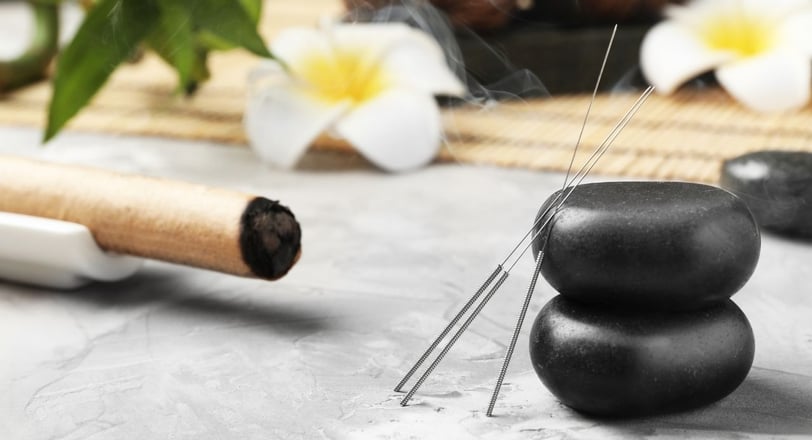Ancient Practices for Modern Health: The Science Behind Acupuncture and Ayurveda
In a world of cutting-edge medical advancements, ancient healing systems like acupuncture and Ayurveda continue to thrive, offering holistic approaches to health and well-being. These practices, rooted in thousands of years of tradition, address not just physical ailments but also the interconnectedness of mind, body, and spirit. But how do these ancient methods fit into our modern understanding of health? This article delves into the science behind acupuncture and Ayurveda, exploring their principles, benefits, and relevance in today’s fast-paced world.


What is Acupuncture?
Acupuncture is a traditional Chinese medicine (TCM) practice that involves inserting thin needles into specific points on the body, known as acupoints. These points lie along meridians—pathways through which vital energy, or Qi (pronounced "chee"), flows.
The goal of acupuncture is to restore balance and harmony to the body by unblocking or redirecting the flow of Qi.
How Acupuncture Works: The Science
Modern research suggests that acupuncture stimulates the nervous system, promoting natural healing processes. Here’s how:
Activation of Endorphins: Acupuncture triggers the release of endorphins, the body’s natural painkillers, reducing discomfort and promoting relaxation.
Improved Circulation: Needle insertion increases blood flow, which helps with tissue repair and detoxification.
Nervous System Regulation: Acupuncture influences the autonomic nervous system, promoting a shift from the stress-inducing "fight or flight" mode to the calming "rest and digest" state.
Benefits of Acupuncture
Pain Relief: Effective for chronic conditions like back pain, arthritis, and migraines.
Stress Reduction: Calms the mind and lowers cortisol levels.
Improved Sleep: Supports deeper, more restful sleep.
Digestive Health: Helps with conditions like irritable bowel syndrome (IBS).
Women’s Health: Addresses hormonal imbalances, menstrual irregularities, and symptoms of menopause.
What is Ayurveda?
Ayurveda, meaning "the science of life," is a holistic healing system from India that dates back over 5,000 years. It focuses on balancing the body’s three fundamental energies, or doshas:
Vata: Governs movement, creativity, and energy flow.
Pitta: Controls metabolism, digestion, and transformation.
Kapha: Influences structure, stability, and immunity.
Ayurveda emphasizes personalized care, considering an individual’s unique constitution (or prakriti) to recommend diet, lifestyle, and treatments.
How Ayurveda Works: The Science
Ayurvedic practices, though ancient, align with modern health principles:
Gut Health: Ayurveda’s focus on digestion (agni) mirrors current research linking gut health to overall well-being.
Detoxification: Panchakarma, a cleansing therapy, aids in eliminating toxins, reducing inflammation, and improving energy.
Mind-Body Connection: Practices like yoga, meditation, and mindfulness enhance mental health, aligning with neuroscience findings on stress reduction.
Benefits of Ayurveda
Personalized Nutrition: Tailors diets to balance individual doshas.
Stress Management: Uses meditation, yoga, and herbs like ashwagandha to reduce anxiety.
Chronic Disease Prevention: Focuses on lifestyle modifications to prevent illnesses.
Holistic Healing: Treats root causes rather than symptoms.


The Relevance of Acupuncture and Ayurveda Today
With rising stress levels, chronic diseases, and reliance on pharmaceuticals, many people are seeking alternative and complementary therapies. Acupuncture and Ayurveda provide:
Holistic Care: Addressing physical, mental, and emotional health as interconnected.
Natural Remedies: Reducing dependency on synthetic drugs.
Prevention Over Cure: Emphasizing lifestyle changes to maintain health and prevent illness.
Scientific Evidence Supporting These Practices
Acupuncture Studies
A 2018 review in The Journal of Pain confirmed acupuncture’s effectiveness in treating chronic pain, including osteoarthritis and migraines.
Research published in Neuroscience Letters found that acupuncture can improve mental health by reducing anxiety and depression symptoms.
Ayurveda Studies
A study in Journal of Ayurveda and Integrative Medicine demonstrated that Ayurvedic dietary practices improve gut health and immunity.
Research on ashwagandha, a key Ayurvedic herb, shows it reduces stress and improves energy levels by lowering cortisol.
How to Incorporate Acupuncture and Ayurveda into Your Life
Getting Started with Acupuncture
Consult a Licensed Practitioner: Ensure the acupuncturist is certified and experienced.
Set Realistic Expectations: Results may require multiple sessions.
Combine with Modern Medicine: Acupuncture can complement traditional treatments.
Integrating Ayurveda into Your Routine
Learn Your Dosha: Take an Ayurvedic assessment to understand your constitution.
Adopt Ayurvedic Nutrition: Eat seasonal, freshly prepared foods tailored to your dosha.
Practice Daily Rituals: Incorporate practices like oil pulling, tongue scraping, and herbal teas.
Meditate and Move: Use yoga and mindfulness to balance the mind-body connection.
FAQs About Acupuncture and Ayurveda
Q: Are these practices safe?
A: Yes, when performed by trained professionals, acupuncture and Ayurveda are safe. Always consult your healthcare provider before starting any new treatment.
Q: Can they replace modern medicine?
A: No. Acupuncture and Ayurveda should be used as complementary therapies alongside conventional medical care.
Q: Are they suitable for everyone?
A: Most people can benefit, but individual needs vary. Seek personalized advice from certified practitioners.
Conclusion
Acupuncture and Ayurveda are timeless practices that offer profound insights into health and wellness. Their holistic approaches, rooted in ancient wisdom, align seamlessly with modern science, making them powerful tools for navigating today’s health challenges.
Whether you’re seeking relief from chronic pain, stress management, or a deeper connection with your body, these ancient systems provide practical, natural solutions. By integrating acupuncture and Ayurveda into your life, you can take a proactive step toward balanced, long-lasting well-being.
Products Reviews
Disclaimer
The statements on this website have not been evaluated by the Food and Drug Administration. The articles and products advertised are not intended to diagnose, treat, cure, or prevent any disease.
The content of the website and the products advertised are based on the opinions of the authors and are provided solely on an "AS IS" and "AS AVAILABLE" basis. You should do your own research and confirm information with other sources when seeking information about health issues, and always carefully review the information with your healthcare professional before using any of the protocols presented on this website and/or the products indicated. Neither Drops&Pills nor the authors are engaged in rendering medical or similar professional services or advice through this website or the products, and the information provided is not intended to replace medical advice offered by a physician or other licensed healthcare professional. You should not construe the recommendation of the products by Drops&Pills as an endorsement by Drops&Pills of the opinions expressed herein, or any guarantee of any strategy, recommendation, treatment, action, or application of advice made by the authors of the products.
Some names and personally identifiable information on this site have been changed to protect the privacy of individuals.
Drops&Pills is the publisher of the articles on this site. Drops&Pills' role as publisher does not constitute an endorsement, approval or review of the products advertised herein or any claim, statement or opinion used in the promotion of those products.
For product support, please contact the suppliers.
For purchase and order support, please contact the platform you placed the order through.
For support with article information, please contact Drops&Pills here.
*Free shipping according to the rules on the product page.
Natural Products for Better Health
© Drops&Pills Research 2025 All rights reserved
Contacts
contact@dropsandpills.com
